- AdventHealth for Children
In the heart of Central Florida, Florida Hospital for Children is leading the way in education that will save lives from an infection that is highly fatal but 100 percent preventable. Primary Amebic Meningoencephalitis (PAM) is caused by the amoeba Naegleria fowleri (N. fowleri), commonly referred to as the “brain eating amoeba.” Florida ties with Texas in having the highest number of cases nationally. Minutes matter in the treatment of PAM, so Florida Hospital for Children has made it a priority to put processes and tools in place that lead to quick detection of this condition and clinical decision making.
Florida Hospital has developed and implemented an alert in the EMR that reminds providers to ask questions about freshwater exposure when ordering a cerebrospinal fluid (CSF) test. In addition, the hospital has developed a care pathway that delineates the management of a suspected PAM patient. Since time is critical to survival, the new “Amoeba Alert” is akin to a stroke protocol or a STEMI alert and is standardized across our network emergency departments.
Many of these important changes can be attributed to the collective work done over the past three years at the annual Amoeba Summit, hosted and founded by the Jordan Smelski Foundation for Amoeba Awareness in collaboration with Florida Hospital for Children to bring national attention to the dangers of N. fowleri and PAM, which took young Jordan’s life in 2014.
The Amoeba Summit includes presentations by national experts, as well as workgroups in prevention and awareness, early detection and treatment and research. The annual event is also sponsored by the Florida Department of Health in Seminole County, in partnership with the Florida Department of Health in Orange County.
The Fifth Survivor
In the past 50 years, only four people have survived the country’s reported 143 cases of PAM, according to the CDC. Sebastian DeLeon — treated last year at Florida Hospital for Children — is one of them. DeLeon is one of only a handful of reported survivors throughout the country and is thriving today. Many of the clinicians and caregivers who attended the first Amoeba Summit were involved in the case.
In 2015, Shiela Black — a lab coordinator at Florida Hospital Orlando — attended the very first Amoeba Summit. Fast forward about one year to Sunday, August 7, 2016, when Black received a spinal fluid sample from a pediatric patient. “I literally put my chamber to the side, and I saw the name and age and said to myself, ‘I need to go back and take a longer look,’” Black explained.
That’s when she saw the movement of a single amoeba. This set in motion a series of events that ultimately saved the life of 17-year-old DeLeon. Numerous specialties came together including critical care, pharmacy, emergency and infection control, leading to his recovery. “If you’re not consciously looking for [the amoeba], you can miss it, because it looks like a white cell,” Black said. “You have to be actively looking for amoeba.”
More About PAM
Primary Amebic Meningoencephalitis (PAM) is caused by the amoeba Naegleria fowleri. Because the infection is uncommon, even during the summertime, there is often a low index of suspicion, as early symptoms are non-specific and quite often mimic bacterial or viral meningitis. The infection occurs when amoeba-contaminated freshwater contacts nasal mucosa. The amoeba can penetrate nasal mucosa, travel along the olfactory nerves and cross the cribriform plate, entering the brain.
Symptoms usually start one to nine days after nasal exposure to Naegleria-containing water. Initial symptoms may include headache, fever, nausea or vomiting. Later symptoms can include stiff neck, confusion, lack of attention to people and surroundings, loss of balance, seizures and hallucinations. The median time from the onset of symptoms to death is five days. The fatality rate of this rapidly developing infection is over 97 percent.
Despite these facts, successful case outcomes are possible. The U.S. Centers for Disease Control and Prevention (CDC) recommends treatment with a combination of drugs as early as possible for the best chance of survival. Typical treatment includes both killing the amoeba using medication — including miltefosine — and reducing the swelling of the brain, inducing coma, administering steroids and lowering the body’s temperature.
Recent News

Local leaders, officials, and construction workers gathered today to commemorate a major milestone in the expansion underway at AdventHealth Daytona Beach: placing the final steel beam.
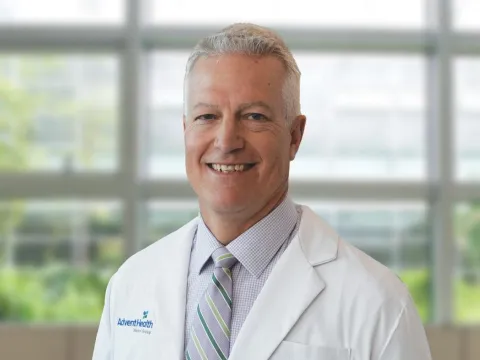
Dr. Jeffrey Keen, a board-certified orthopedic surgeon specializing in adult reconstruction, orthopedic surgery, robotic-assisted surgery, and sports medicine, has returned to AdventHealth Medical...
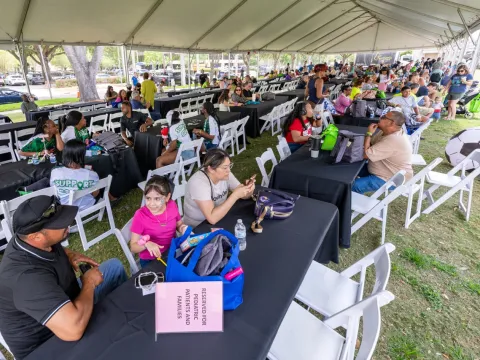
In recognition of National Donate Life Month, nearly 300 transplant patients and their families enjoyed AdventHealth’s 2025 transplant reunion.
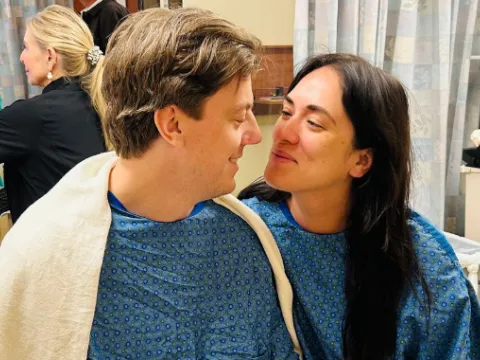
According to the National Kidney Foundation, more than 101,000 people are currently on the organ transplant list in need of a new kidney. However, only about 17,000 transplants happen each year —...

The AdventHealth Board of Directors has appointed David Banks as the organization’s new president/CEO, effective immediately.

In life, Sophie Davis touched dozens of hearts. In passing, one of her organs could possibly save thousands of lives.

As the days get longer and the weather warms up, people are eager to get back to their favorite outdoor spring activities and sports. This transition from winter to spring often leads to an increased...
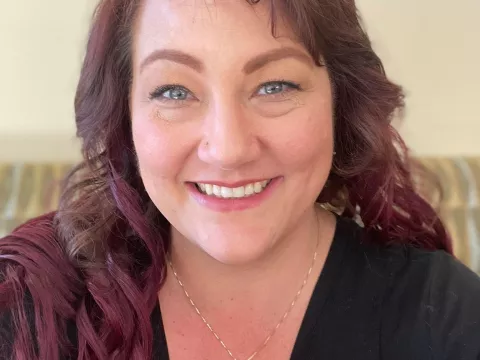
Marie Williams remembers being admitted to AdventHealth Parker on September 1, 2023, for colon resection surgery, but after that, things get hazy.

AdventHealth for Children is a nationally recognized children’s hospital and comprehensive care network caring for nearly 200,000 children annually.

Care Management Assistant, Meghan Bussard, was the recipient of the 2024 Outstanding Team Member Award for AdventHealth Shawnee Mission. Bussard is known across AdventHealth Shawnee Mission as a...
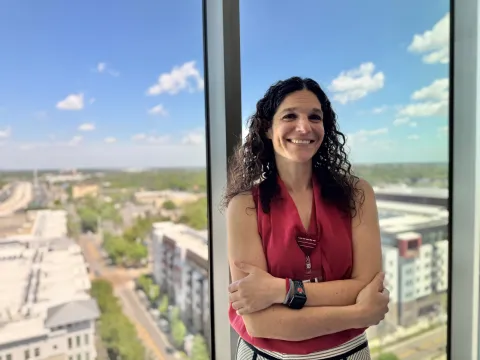
As the only physician in Central Florida certified to use the intestinal ultrasound, a cutting-edge diagnostic tool still new to the U.S., Dr. Jennifer Seminerio-Diehl is transforming the way IBD is...

Every March, we celebrate Women’s History Month and the countless contributions women have made across all parts of society, including health care. One such area where women have made remarkable...
